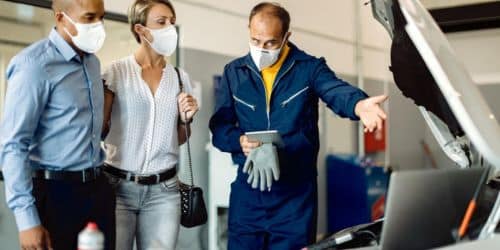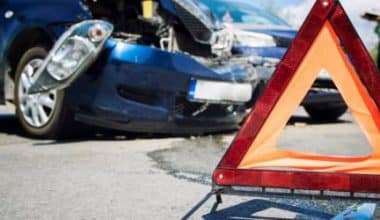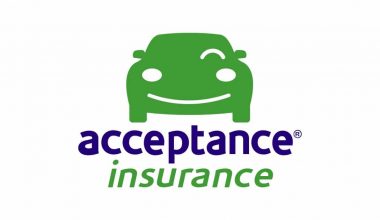Depending on the coverage you choose, car insurance gives financial protection if your car is damaged or stolen, you are wounded in an accident, or you are at fault for an accident that caused physical harm or property damage to third parties. It can also help you meet any minimum coverage requirements imposed by your state or a lender. However, the specifics of car insurance depend on your state’s laws, the coverages you carry, and your insurer. In this article, I will explain in detail how insurance works in an accident if your car is totaled in Florida.
How Does Car Insurance Work: Overview
Property and casualty (P&C) insurance, such as car insurance, protects you financially in the event of an accident, theft, or damage to your vehicle due to something other than an accident (such as a falling tree or snow). The insurance company will pay for certain costs on your behalf in exchange for a premium, which is the money you pay for the coverage.
Indemnity is the idea behind auto insurance. It means that the insured will get their money back or be returned to their original state. As long as you have the right coverage and amounts, your insurance can help pay for repairs, replacements, medical bills, and any other costs you are responsible for if you cause an accident and damage someone’s car or are charged.
How Does Car Insurance Work: What Does Car Insurance Cover?
An auto insurance policy is usually a combination of several coverage types. Some will be required by law, while others are optional. For this reason, auto insurance companies let you customize your policy to fit your needs and budget. Here are some standard car insurance coverage options:
#1. Liability Insurance
If you’re at fault in an accident, liability insurance will pay for medical care for people who get hurt and fixes for damage you cause to other people’s property. If someone sues you for damages after an accident, it can also pay for your legal bills. Usually, you should get enough liability insurance to cover what you might lose in court. This is because some states require a certain amount of liability insurance, but not all of them do.
#2. Medical Payments or Personal Injury Protection Coverage
There is no limit on who is responsible for an accident in Florida; medical payment coverage (also known as MedPay) or personal injury protection (PIP) insurance pays for injuries to you or your guests. Both of these are similar, but PIP covers more things. Most of the time, PIP pays for medical bills, lost wages, funeral costs (if needed), and services that help the wounded person do everyday things. lastly, states have different rules about who can get MedPay and PIP.
#3. Underinsured/uninsured Motorist Coverage
Not every driver has enough car insurance. Because of this, insurance companies offer underinsured or uninsured driver coverage to help you if someone hits your car and doesn’t have enough liability insurance to pay for your injuries or damage to your car.
#4. Coverage for Collision
The collision policy will cover your own car after an accident. Even if your car collides with something other than another car, collision coverage will still pay for the damage. If your car is totaled, collision coverage will pay you the car’s real cash value, less any deductible.
#5. Comprehensive Coverage
Unfortunately, accidents aren’t always the cause of damage to cars. Break-ins, theft, and natural disasters can also cause damage. For example, complete car insurance can pay to fix your car if a tree falls on it while it’s parked in your driveway. This means comprehensive insurance would pay you the value of your car at the time of the accident, minus your deductible, if your car is a total loss.
How Does Car Insurance Work? Steps to Take in the Car Accident Scene
Most car insurance work in Florida follows the same steps for making a claim after an accident. You need to: After an accident
- Contact the police and make sure everyone is safe after the accident. Calling 911 for emergency help may be necessary, depending on how bad the accident was.
- Both your and the other person’s damage should be photographed.
- For whatever reason, don’t say you’re responsible for the accident. After getting information about the accident, your insurance company will decide who is responsible.
- Collect the proof you need to submit your claim. This information can come from your insurance company, but it usually includes a “proof of claim” record and a copy of the police report.
- Make a claim by calling your insurance company or using their online claim tool. Your agent will also need to be contacted.
- Keep an eye on how your insurance claim is going and schedule a follow-up meeting with your claim expert.
Prior to submitting a claim, you should check with your insurance company to learn exactly what steps need to be taken. This way, you can avoid any needless delays or problems. In addition to that, store this information somewhere safe. Meanwhile, I would love drivers to remember:
- Exactly how fast you were going when the accident happened
- Where the accident happened exactly
- Information about those staying with you, like their names and ages,
- Details about the other cars’ color, make, model, and year
- When the accident happened,
- There are names and contact information for people who saw the crash.
- Weather and road conditions at the time of the accident.
- Someone’s name and tag number when they get to the accident scene.
- Instantly after the accident, make a claim with your insurance company.
How Does Car Insurance Work?: Documents Required To Make A Claim
Your insurance company might ask you to submit a claim form with a list of documents to check the legitimacy of the claim. Some of them will be listed below:
- A copy of your insurance policy
- First Investigation Report (FIR)
- Copy of your car’s registration certificate
- A copy of your driving license
- Medical bills (if applicable)
- An estimate of your car’s repair bills
Note that a car insurance policyholder can make two types of insurance claims: third-party claims and own damage claims. Furthermore, it is best not to file a claim if the loss is very small. It helps you keep your no-claim bonus, which is just a discount your insurance company gives you when you update your policy. You can also take your car to a service center for repairs and not have to pay for the work through your insurance company, like Cholamandalam car insurance.
How Does Car Insurance Work: After the Accident is Reported
After the accident is recorded, the claims adjuster who is in charge of your case will get in touch with you. Based on your needs, the adjuster will choose whether to meet you in person or over the phone. Another thing the claims assessor will do is figure out how much of the cost of the accident your insurance will cover.
so, talk to the claims adjuster about any questions you have about the deal. They will help you through the whole process. However, someone is always found to be partly or fully to blame for an accident. Here, the insurance company will use the rules for determining fault to make a decision about who is at fault in the accident and what coverage must be used.
Then, the claims adjuster will tell you what kind of coverage you have based on the policy you got and how the accident happened. Once these things are decided, the car insurance company will take further steps to make up for the losses you suffered because of the accident, either in full or in part, depending on what the claims agent finds and decides.
How Does Car Insurance Work if Car Is Totaled
In Florida, after a car accident, just when you thought things couldn’t get worse, your insurance company says your car is totaled. You will see your car one last time when you get your things together before it’s towed to the big dump in the sky. When your car insurance company thinks that the cost of work is more than what the car is worth, it is called “totaled.”
If your insurance company says your car is totaled after an accident, you can get paid what the company thinks the car is worth, less the deductible on your policy. This means car insurance companies would pay you $4,500 if your car is worth $5,000 and you have a $500 deductible. Here’s an example of how an insurance claim for a totaled car might work after an accident:
- You get into a car accident and file a claim under the collision insurance portion of your car insurance policy.
- A claims adjuster inspects the vehicle and deems it a total loss based on your state’s total loss method.
- Your insurance company makes a settlement offer based on your car’s value minus your collision insurance deductible amount.
- If you have a loan or lease, a settlement check will go to your lender or leasing company for the balance remaining.
- If you do not have a loan or lease, you will receive the settlement check.
How Does Car Insurance Work if Car Is Totaled: Effective Tips To Handle It
In Florida, if your car is totaled, here are ways you might consider handling it.
#1. Let the Insurance Company Pay You
If your car is totaled in an accident, it might be best to just let the insurance company pay you. But, based on the insurance rules in your state, this could mean:
- Swapping out your totaled car for a similar one
- Giving you cash that’s equal to the real cash value of your totaled car
But the insurance company’s offer can be contested if you think it is too low.
#2. Leave the car As-Is
A totaled car might still be able to be driven in some situations. If it is, you can keep it and keep driving the car the way it is. You might want to think about this if you don’t have collision or comprehensive insurance to pay for the fixes. Hence, it’s important to have a mechanic look at your totaled car first to make sure it’s safe to drive.
#3. Trade It In
What if you want to buy another car? The seller might let you trade in a totaled car. If you want to make sure that the owner is giving you a fair price for your car, you should get it evaluated by a professional.
#4. Donate the Car
Donating a totaled car to a charity is another choice. There are many groups that will take donations of cars, even ones that have been totaled, to help them run.
Also, if you give your totaled car to charity, you might be able to claim it as a tax deduction.
#5. Repair It Yourself
Lastly, if your car is totaled, you can pay to fix it yourself. Consider this option if your insurance won’t pay for fixes but you still want to keep the car and get it ready to drive again. Consider these things when deciding whether to fix a totaled car:
- The car’s ability to be fixed and driven again
- Get more than one quote on how much the repairs will cost.
- How much is the car worth after it’s serviced?
- Details on how you’ll pay for the fixes
- For what amount of time do you plan to drive the car?
This is necessary because some car models will cost more to fix than others.
Should I keep full coverage on my paid car?
Yes, you’ll still need to carry some coverage since state car insurance requirements necessitate some form of it.
What is the #1 auto insurance in the US?
It is USAA
Why is first-time insurance so expensive?
Without an insurance history or driving experience, new drivers are viewed as risky to insure, so companies often charge them rates.
How do I add insurance to my new car?
All you need to do is call your agent.






